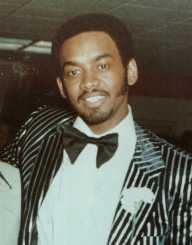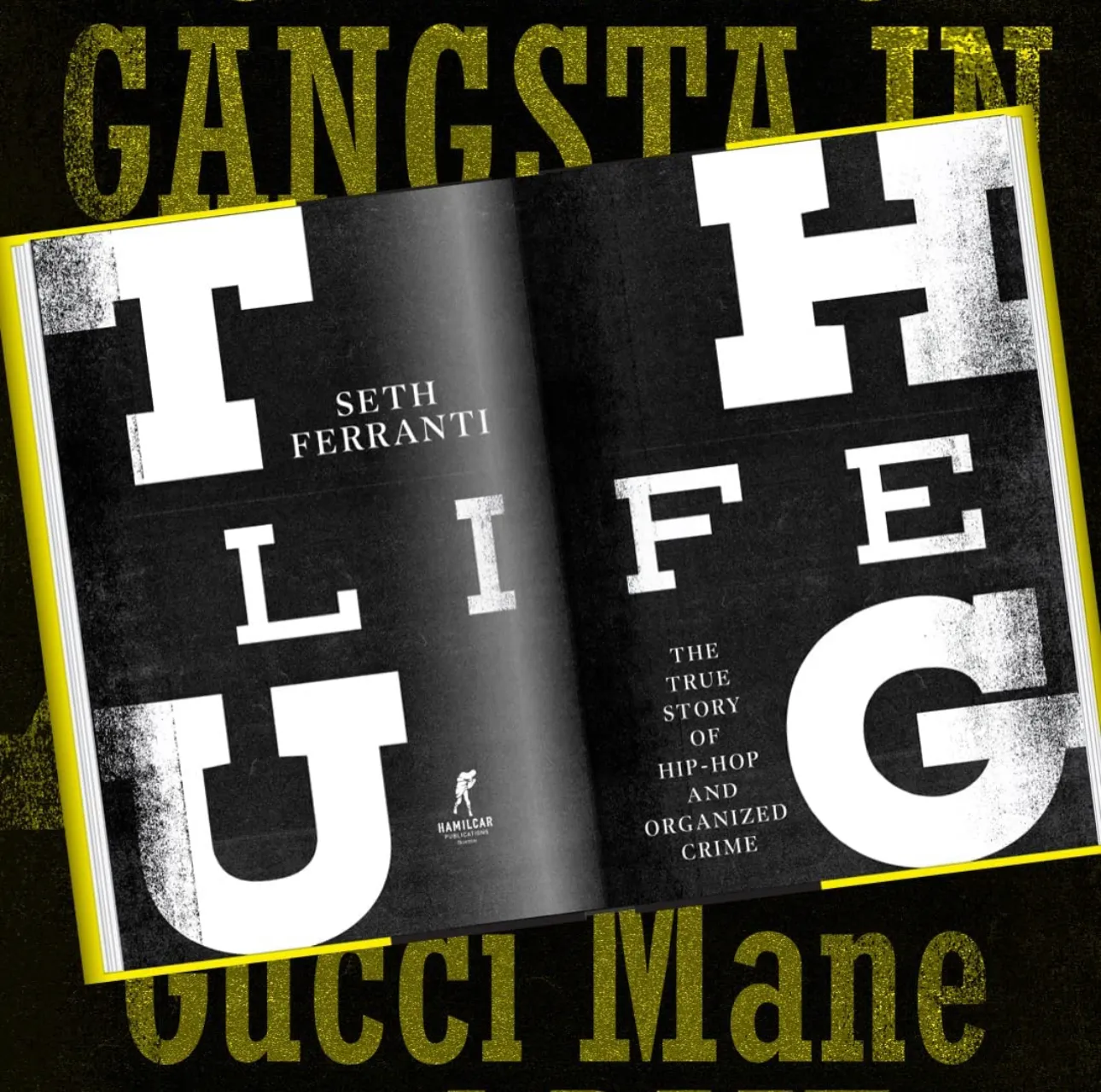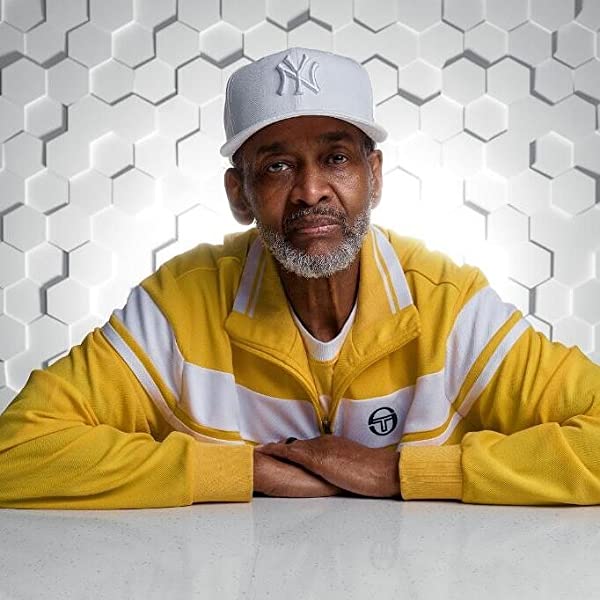“My enemies deceased, die like a bitch when my album hits the streets, nas can’t see me, they wanna be me, be my homie’s lil’ kid, got his name tatted on his wrist, little na don’t miss, that’s Guy Fisher.” — “All Eyes on Me” by Tupac Shakur
Dr. Guy Thomas Fisher was one of the most powerful and notorious drug lords of the 1970s and 80s. Born in 1947 in South Carolina, Fisher moved to Harlem with his family at the age of nine. He quickly became involved in the street life, running with a gang and selling drugs. By the time he was in his mid-20s, Fisher had become one of the most successful and feared drug dealers in New York City.
Fisher was known for his business savvy, ruthless tactics, and connections to some of the most powerful people in the city. However, Fisher’s ride came to an abrupt end in 1983 when he was arrested and later convicted of drug trafficking and sentenced to life in prison. His legacy would leave a lasting impact on the city of Harlem, and his exploits would become legendary in organized crime and hip-hop culture.

From Harlem to the Drug Trade
“I’m the Black Gotti, the reincarnated John Gotti/And I’m a live, probably die by the old code of the street/Like the Black Godfather, Huey Newton of the PJs, or talking about Guy Fisher” — “No Hook” by Jay-Z
Fisher was born on May 31, 1947, in the small town of Charleston, Mississippi. He was raised in a family of 12 siblings and was the youngest of the lot. His father, Elijah Fisher, was a Baptist preacher, and his mother, Cleo Fisher, was a homemaker. The family moved to Harlem, New York, in the late 1950s to escape the segregation and racism prevalent in the South.
In Harlem, Fisher grew up in a neighborhood that was rife with gangs and violence. He attended P.S. 175 and J.H.S. 43, where he was a good student and athlete. However, he started to run with the wrong crowd at an early age and began to get involved in petty crimes.
In an interview, Fisher’s daughter said, “My father grew up in Harlem during a time when it was a cultural epicenter for Black America. He was surrounded by music, art, and a vibrant community. But he also saw the harsh realities of poverty, violence, and discrimination.”
At the age of 15, Fisher dropped out of school and started to work odd jobs to make ends meet. He eventually landed a job as a cleaner at a local bar, which was frequented by many drug dealers. Fisher quickly made connections with these dealers and started to sell drugs on the side.
In the early 1970s, Fisher teamed up with a drug dealer named Nicky Barnes and joined his drug empire, known as “The Council.” Fisher quickly rose through the ranks and became one of Barnes’ top lieutenants. The Council was one of the largest drug trafficking organizations in New York City during the 1970s, and Fisher played a significant role in its operations.
Fisher’s early life in Harlem and his involvement in the drug trade set the stage for his later notoriety as a major player in the criminal underworld.

The Power Play
“Council of the elders, controlled by crime lords/And secret societies, with illegal entrepreneurs” — “Maria” by Wu-Tang Clan
Guy Fisher’s rise to power can be largely attributed to his affiliation with The Council, a notorious drug trafficking organization that controlled much of Harlem’s drug trade during the 1970s and 1980s. Fisher quickly rose through the ranks and became one of the most trusted members of The Council.
Fisher’s success with The Council allowed him to expand his drug empire beyond Harlem, extending into other parts of New York City and even across the country. He became known for his ruthless tactics and ability to control vast territories of drug distribution.
“Guy Fisher was a major player in the Harlem drug trade, one of the most notorious and violent drug traffickers of his time,” said Thomas Sheer, the FBI agent that investigated Fisher. “He was a ruthless leader who used violence to maintain control of his operation and intimidate anyone who got in his way.”
Aside from his drug trafficking, Fisher also had a passion for entertainment. In 1977, he became the first Black man to own the historic Apollo Theater in Harlem. Fisher’s ownership of the theater was seen as a major accomplishment for Black entrepreneurs and a significant step forward in the civil rights movement.
The New York Times reported, “It was at the Apollo, which Mr. Fisher bought in 1977 for $225,000, that he seemed to be making his biggest statement. He was determined to restore the theater, which had fallen into disrepair, to its glory days as the cultural heart of black Harlem. Mr. Fisher invested millions of dollars, renovating the theater and turning it into a showcase for black talent.”
Fisher’s ownership of the Apollo was short-lived, however, as he was arrested and sentenced to life in prison in 1984 on drug conspiracy charges. Despite his downfall, Fisher’s impact on the drug trade and entertainment industry in Harlem cannot be denied.
Imprisonment and Downfall
“Gambino-type so I’mma boss like Gotti/It ain’t no telling, we bust shots like Guy Fisher — “Doe or Die” by AZ
In 1978, when Fisher’s mentor and rival Nicky Barnes went to prison, the Harlem gangster saw an opportunity to move up and expand his enterprise. However, the end to Fisher’s reign as a major player in the drug trade came to a screeching halt when Barnes suddenly turned informant and testified against Fisher and others.
Barnes claimed his snitching was in retaliation for Fisher having an affair with his beautiful mistress. In an interview with VladTV, former associate Louis Diaz remembered Barnes saying, “This is it. I’m flipping. I don’t care I’m flipping. These guys…they fucked me you know so I’m gonna get back at them.” For his snitching, Barnes ended up with a million-dollar bounty on his head and a golden parachute into the witness protection program.
In an interview with Mike Wallace on 60 Minutes, Fisher expressed his disappointment, saying, “The ultimate betrayal is when someone you call your friend snitches on you. It’s not just about doing time, it’s about the principle of it all. And Nicky broke the code.” Despite the damage done to their friendship, Fisher refused to cooperate with law enforcement and maintained his silence until the end of his sentence.
In 1984, Fisher was found guilty on all counts and sentenced to life in prison without the possibility of parole. He was sent to a federal prison in Marion, Illinois, known for its strict security measures and housing some of the most dangerous criminals in the US.
Richard Thornburgh, former U.S. Attorney General and prosecutor in Fisher’s case, said, “Fisher was the kingpin of a drug empire that spread throughout Harlem and beyond. He was responsible for untold amounts of violence and destruction, and his conviction sent a clear message that no one is above the law, no matter how powerful they may seem.”
While in prison, Fisher maintained his innocence and appealed his conviction multiple times, but to no avail. He also became an advocate for prison reform and was a mentor to many inmates, sharing his experiences and encouraging them to turn their lives around.
During his 2003 sentencing hearing, Fisher stated to the court, “Prison was the best thing that ever happened to me. It gave me time to reflect on my life, my wrongs and my rights.” He went on to say, “I spent years reading and studying, educating myself, and taking college courses. I’ve done everything in my power to become a better man, to be a positive influence on others.”
Fisher was released in 2020 under a medical parole. His health had deteriorated along with the drug empire he had built. Fisher passed away in 2021 at the age of 73. Despite his downfall, he remains a notable figure in Harlem’s history, known for his business acumen and the unique position he held as the first Black man to own the Apollo Theater.
The Legacy and Influence
“My city’s full of killers and gangsters, dealers and bankers, Guy Fisher, Rich Porter, left with they brains splattered.” — “Frank Lucas” by AZ
Guy Fisher’s affiliation with the Council helped to solidify the group’s power and control over the drug market in the area. Fisher was known for his business acumen and his ability to navigate the dangerous world of organized crime. He was widely respected by his peers and was considered a major player in the game.
Fisher’s imprisonment had a significant impact on the Council and the drug trade in Harlem. With Fisher behind bars, the group lost one of its most powerful members, and their grip on the drug market weakened. This allowed other groups to move in and compete for control of the area. The Council’s decline was further hastened by the increasing pressure from law enforcement and the federal government, who were cracking down on drug-related crimes.
Despite his involvement in illegal activities, Fisher’s story has had a lasting impact on Black entrepreneurship and business ownership. As the first Black man to own the historic Apollo Theater in Harlem, Fisher demonstrated that it was possible for Black people to succeed in business and achieve their dreams. His story serves as a reminder that even in the face of adversity and systemic racism, Black people can overcome obstacles and achieve success.
“Black entrepreneurs often face significant obstacles in the business world, including limited access to capital and discriminatory practices,” writes Robert Holmes in his book Black Entrepreneurs in America. “Some have turned to organized crime as a means of gaining financial backing, protection, and access to resources. While this strategy may yield short-term gains, it can ultimately lead to legal troubles and reputational damage.”
Fisher was featured in the BET series “American Gangster,” and his name and legacy have been immortalized in the lyrical lore of hip hop. Fisher has been name-dropped in numerous songs by artists such as Nas, Jay-Z, and Big L, cementing his place in the cultural history of Harlem and the greater hip-hop communities.
While Guy Fisher’s contributions to the Black community are mixed, his story serves as a cautionary tale about the dangers of the drug trade and organized crime. Additionally, his story highlights the need for Black entrepreneurship and business ownership, as Fisher’s ownership of the Apollo Theater showed that success could be achieved outside of the drug trade. Overall, Fisher’s life and impact continue to be studied and debated, making him a fascinating and complex figure in American history and the annals of gangster lore.
FOR SETH FERRANTI’S BOOKS, COMICS AND BLOTTER ART, VISIT THE GORILLA CONVICT SHOP HERE





1 Comment
R.I.P. Guy.
Fun fact Nicky passed away in Mn. Old timer. Greeter at Walmart used to tell stories of the real New York